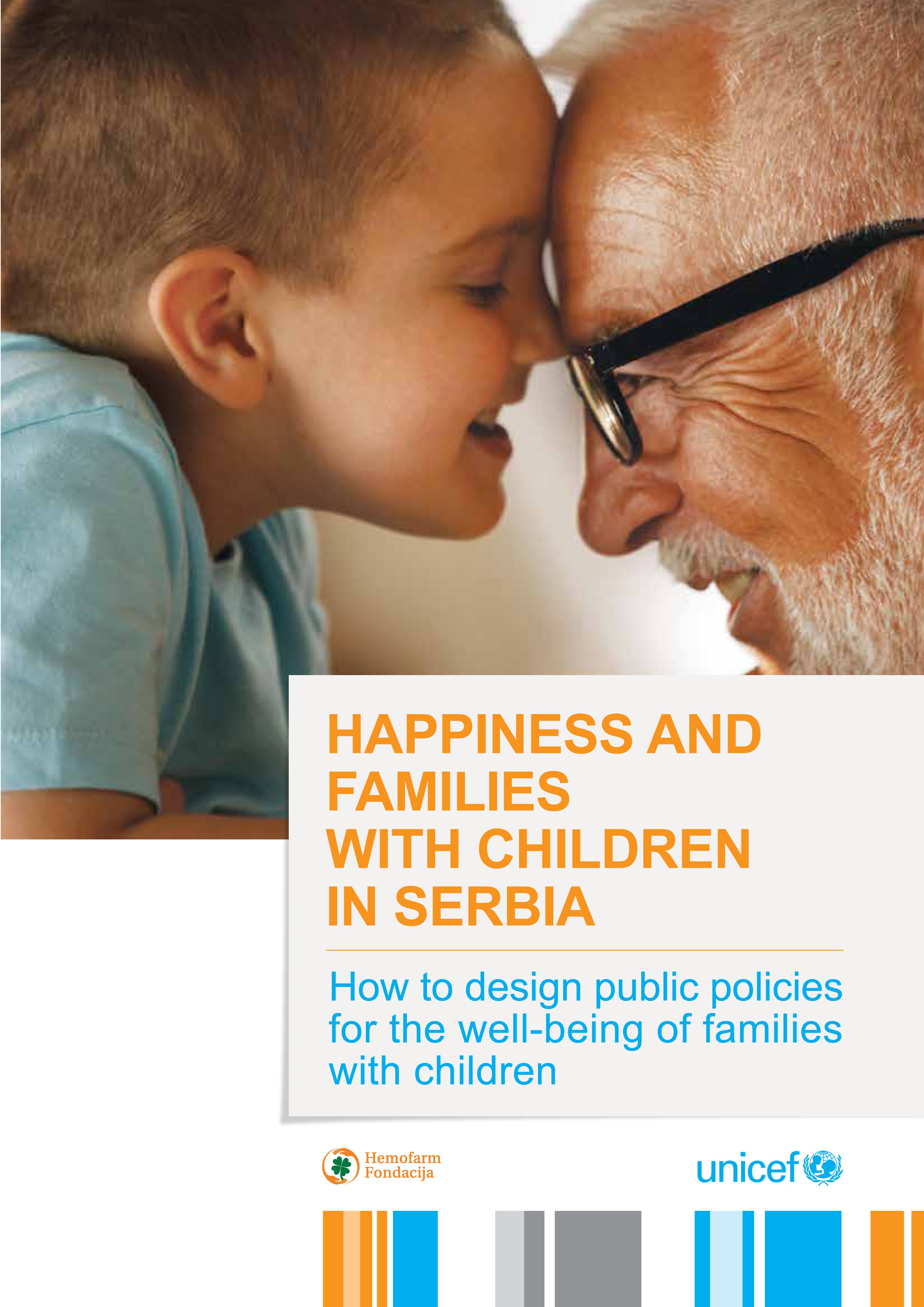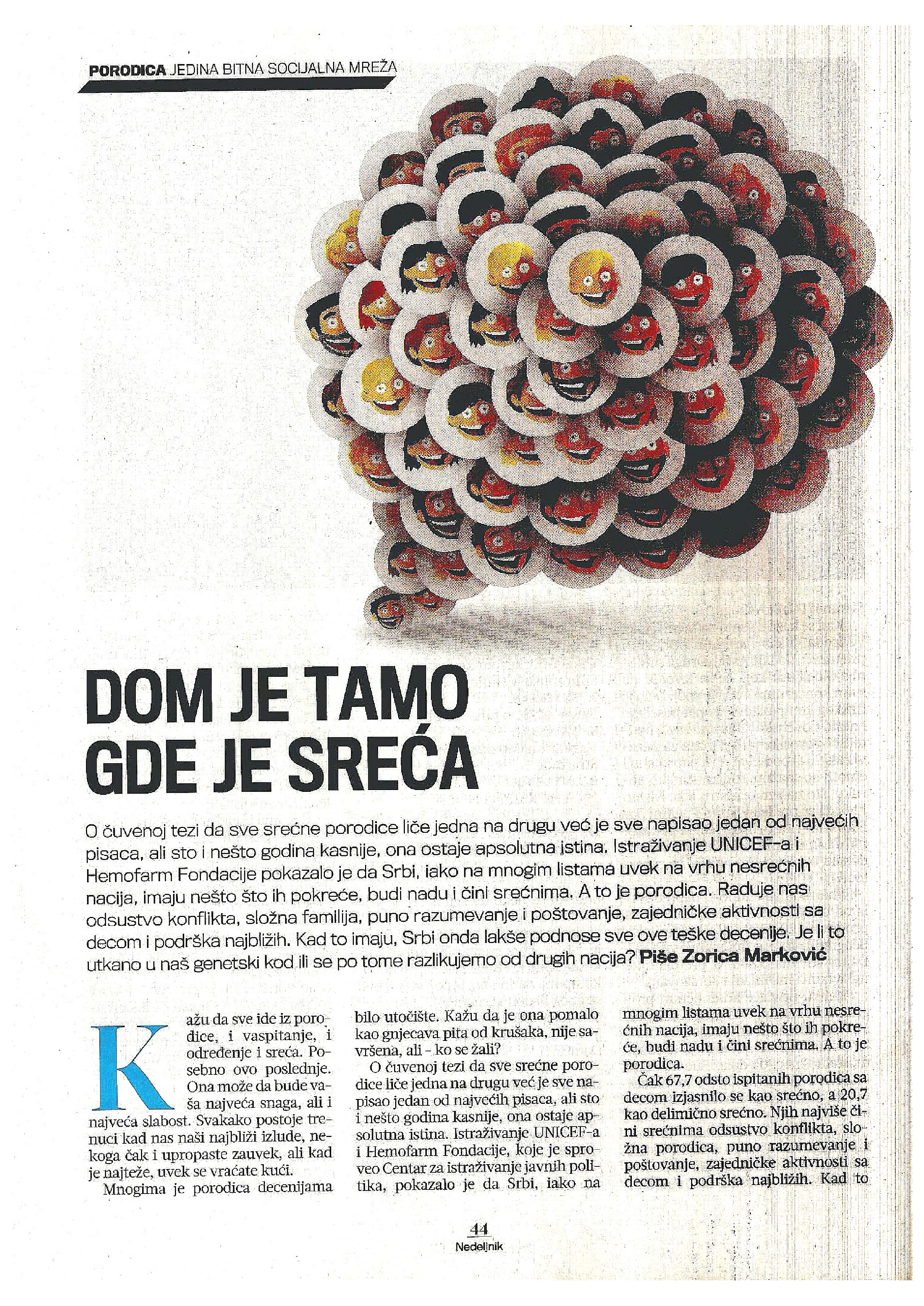Research on family life-satisfaction in Serbia
“Wellbeing of families with children in Serbia” - how parents can be supported in building non-violent and respectful relationships within their household and beyond?

The presentation of the policy report “Wellbeing of families with children in Serbia” in the Media Centre in Belgrade (September 9th), prepared by the Public Policy Research Centre and UNICEF Serbia, with the support of Hemofarm Foundation, has marked the beginning of a UNICEF campaign which aims to initiate a debate around the wellbeing of families with children. Quality dialogue and discussion is expected on topics such as how parents can be supported in building non-violent and respectful relationships within their household and beyond.
As the CENTER’s research findings show, the secret of happiness lies in the quality of our relationships with other people. What characterizes happy families more than anything else are good and respectful relationships between parents and between parents and children. Unhappy families are by default characterized by violent behaviour and conflictual relationships.
The second most important characteristic of happy families is strong supportive relations with extended family and friends. Serbia’s families rely heavily on support of grandparents and aunt and uncles in resolving challenges or in providing support for childcare. Happy families are more likely to have support of this kind, and to have a strong social network, in comparison to unhappy ones.
Contrary to the commonly accepted view that money is important for happiness, correlations between wealth and happiness were not identified, unless in cases where families with children are struggling with financial deprivation. Material wealth was identified as important only when it was so low that it caused difficulties in meeting basic needs and fulfilling basic responsibilities such as paying bills. Higher levels of wealth, articulated through income, possessing a good car or an expensive mobile phone – did not contribute to higher levels of happiness.
These and other research findings were used to shape policy recommendations focusing on better access to information in supporting parenting and bringing up children, the need for establishing advisory and family resource centres to partner relationships, and provision of efficient responses of the state to issues of violence.
The campaign is supported by Serbia’s national public television (RTS) and will expand to other media outlets including Vojvodina’s public service (RTV) and regional/local media outlets. Citizens are invited to participate in the debate through electronic media, especially Facebook.






